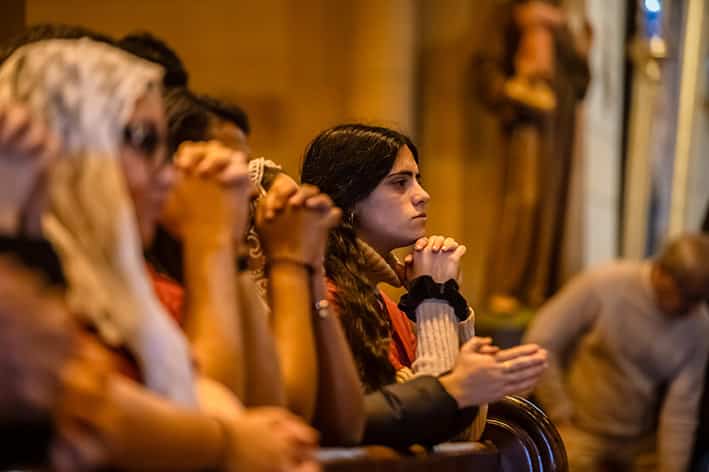
There’s a dearth of real knowledge about women in the Catholic Church in Australia. We are a topic on which everyone has an opinion, an anecdote, and sometimes a very small “reform” group—but little actual evidence.
Women are woven into the very fabric of the church, and you can’t pull us out without wrecking everything. And yet some people talk about Catholic women as if we are a rare species of orchid that only blooms once a year.
My point is that we don’t really know what Australian Catholic women think and believe these days. So I’d like to introduce you to a group of 1241 Catholic women from all over Australia who make up 54 per cent of my total sample.
I’ve been dividing my data up into three groups of Catholics—those who go to Mass at least weekly, (“weeklies”), those who drift in and out (“irregulars”) and finally those who almost never go to Mass, or really don’t go at all (“nevers”).
I’m doing this because my UNDA colleague Stephen Bullivant has found with a British sample that there are differences in what each group believes, and how they live and belong to the church. I’m finding that Australian Catholics are similar.
Of the women in my group, 74 per cent (921 women) are “weeklies” —at least weekly massgoers. Just 19 per cent (239 women) are “irregulars”, and around 7 per cent are “nevers” (just 81 women).
The weeklies were well represented from age 18 up to 80+ years, but around half of all the irregulars and nevers were aged between 50 and 70. So we’re going to hear a stronger late middle-aged voice from them.
Weeklies were less likely to have been born in Australia. They also formed little clumps around Sydney, Melbourne, and Perth. Irregulars clumped around Melbourne and Sydney, and nevers around Melbourne and Brisbane.
The weeklies tended to be either married (60 per cent) or never married (26 per cent). Less than one per cent of them were cohabiting, compared to 6 per cent of irregulars and 12 per cent of nevers. They’re also more likely to be validly married, and twice as likely to have a bigger family.
Weeklies were more likely to have completed an undergraduate degree (32 per cent), but less likely to have a postgraduate qualification (36 per cent), compared to 52 per cent of irregulars and 40 per cent of nevers. The nevers were also more likely to own their own homes (48 per cent)—which might relate to their age.
Interestingly, all three groups looked very much the same when it came to occupational level and income level. As you’d expect, they’re mostly employed in middle management and white-collar jobs.
Each group had around the same percentage (12 per cent) of converts. The nevers tended to convert before the age of 20, but the others mostly became Catholics in young adulthood.
So why do the women weeklies go to Mass, and the irregulars or nevers don’t? The reasons are the same as the group of younger Catholics we looked at earlier.
Ninety per cent of the women weeklies ranked “It helps me to feel closer to God” and “It helps me grow in my relationship with Jesus in the sacraments” as very important reasons why they go to Mass.
By contrast, only 74 per cent of the irregulars ranked the first reason as very important, and only 63 per cent ranked the second.
Women irregulars responded well to “I enjoy taking part in the service itself and experiencing the liturgy”—72 per cent said this was a very important reason for going to Mass.
And there were just two reasons for not going to Mass that stood out as very important for the irregulars or nevers: “I don’t see it as sinful to miss Mass” (52 per cent) and “I disagree with the Catholic Church’s stance on certain issues” (53 per cent).
So when we look at women who are literally in the church—those who go to Mass every Sunday—we can see that they’re there for the same reasons as the under-40s. They want to feel closer to God and have a closer relationship with Jesus in the sacraments.
And the reasons that some women are not in church on Sundays are the same ones we already know about from other studies of lapsed Catholics. They don’t see missing Mass as a sin, and they don’t agree with the church on certain teachings. So let’s press on, next week. What do they actually believe?
